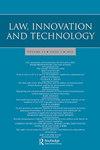The right to be let alone by oneself: narrative and identity in a data-driven environment
Q1 Social Sciences
引用次数: 4
Abstract
ABSTRACT Privacy is predominantly understood as the right to be let alone by others. It protects an individual against intrusions upon the private sphere by governments, companies and fellow citizens and focusses on the right to withhold from them access to one's data, body or home. In the data-driven environment, the fact that others may have access to personal information will only be one concern; equally importantly, a person will be confronted with unwanted information about herself. Being frequently confronted with information about one's past, present and future fundamentally challenges an individual's capacity to form and maintain an identity, which depends on her ability to select and prioritise information about herself. This article suggests that the current privacy paradigm could be ameliorated by treating privacy not only as the right to be let alone by others, but in addition, as the right to be let alone by oneself. But before such a right could be introduced, a number of difficult questions need to be answered, such as the scope of the right, its legal-philosophical underpinnings and its relationship vis-à-vis countervailing interests.独处的权利:数据驱动环境中的叙事和身份
摘要隐私主要被理解为被他人忽视的权利。它保护个人免受政府、公司和其他公民对私人领域的侵犯,并关注阻止他们访问自己的数据、身体或家的权利。在数据驱动的环境中,其他人可能会获得个人信息,这只是一个令人担忧的问题;同样重要的是,一个人会遇到不想要的关于自己的信息。经常面对关于自己过去、现在和未来的信息,从根本上挑战了个人形成和保持身份的能力,这取决于她选择和优先考虑自己信息的能力。本文认为,可以通过将隐私不仅视为被他人忽视的权利,而且视为被自己忽视的权利来改善当前的隐私范式。但是,在引入这一权利之前,需要回答一些棘手的问题,例如权利的范围、其法律哲学基础及其与反补贴利益的关系。
本文章由计算机程序翻译,如有差异,请以英文原文为准。
求助全文
约1分钟内获得全文
求助全文
来源期刊

Law, Innovation and Technology
Social Sciences-Law
CiteScore
4.50
自引率
0.00%
发文量
18
期刊介绍:
Stem cell research, cloning, GMOs ... How do regulations affect such emerging technologies? What impact do new technologies have on law? And can we rely on technology itself as a regulatory tool? The meeting of law and technology is rapidly becoming an increasingly significant (and controversial) topic. Law, Innovation and Technology is, however, the only journal to engage fully with it, setting an innovative and distinctive agenda for lawyers, ethicists and policy makers. Spanning ICTs, biotechnologies, nanotechnologies, neurotechnologies, robotics and AI, it offers a unique forum for the highest level of reflection on this essential area.
 求助内容:
求助内容: 应助结果提醒方式:
应助结果提醒方式:


